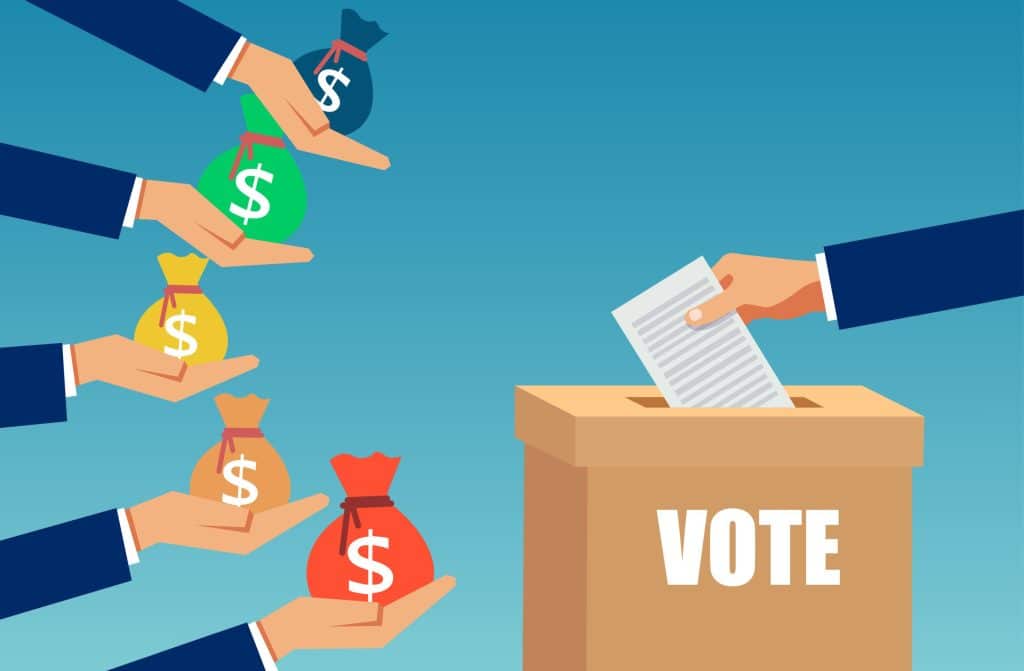If you read this title and are confused, let me explain. There were plenty of hemp products at this year’s MJBizCon, but only for certain things. When it came to all clothing and packaging, hemp was not used, which highlights the issues that currently reside in the hemp industry, and why progress on some fronts is so slow.
Cotton over hemp at MJBizCon?
For the most part, MJBizCon isn’t about the hemp industry, it’s much more geared to the marijuana industry, though some hemp product providers were certainly there. MJBizCon covers the cannabis world in general, and this includes both. I think we’re all aware of the recent CBD craze, the cannabinoid industry which includes products like delta-8 THC and HHC, and all the hemp products that made it to market from skin-care to pet-care.
I’m not talking about any of that though. What I’m talking about isn’t even necessarily about the main products offered. You see, all of the companies had some form of free giveaway. Sometimes pens or candy, and sometimes articles of clothing like t-shirts, hats, and sweatshirts. And this is where my confusion, and frustration, lie.
If you’re a business within the cannabis industry, and you’re going to have sweatshirts made to promote your product, isn’t the obvious answer to go with hemp over cotton – since hemp itself is part of the cannabis industry? All logic points to hemp, right? These are cannabis-promoting companies…they should use cannabis for everything possible including promotional material, right? Apparently, this isn’t right at all. Maybe it should be, but it’s not the current situation.
Thank you for joining us. Subscribe to the Cannadelics Weekly Newsletter to keep updated; and to access awesome product promotions for stuff like cannabis flowers, vapes, edibles, smoking paraphernalia, cannabinoid compounds (like delta-8), and a ton more. Everyone get stoned responsibly!
I was excited to see the hemp clothing offerings, and quite unimpressed that they didn’t exist in the end. Every time I was offered a free shirt or socks, I was quick to ask what the material was, and without fail, it was cotton. And while I mean no disrespect to the company, there was even one business capitalizing on the ‘Hollyweed’ sign, which put out clothing…made of cotton. I thought for sure that company would promote the use of hemp for these products, and was disappointed to find it wasn’t the case.
Of all the promotional merchandise I walked away with, none of the clothing items were made of hemp. Many were made of a high-grade cotton, but not all. I walked away with plenty of synthetic fibers as well. And this went for all packaging materials used too. While hemp is written about as the far superior natural resource for clothing and packaging, few if any of the companies in the industry (or at least at MJBizCon), were using hemp over paper and cotton (or synthetic) products.
What are the issues with using hemp in the cannabis industry?
One of the things we know about hemp, is how useful it is for many products for which we use other materials at the moment. Think plastics, oil, paper, concrete, and clothing. Hemp can reduce the environmental impact of all of these industries, and often offers a better product. Think of strong hemp clothing compared to the synthetic fibers of today that fall apart quickly. Or the trees we cut down for paper, where hemp offers a much more sustainable option.
That it can replace plastics and wood paper, be used in mass building over concrete in many scenarios, provide strong clothing, and can even take the place of some paints, makes it a wonder that at a convention specifically designed around cannabis, that practically none of the companies were using hemp for these purposes.
Why weren’t they? What are the issues that are keeping the hemp industry down? While I didn’t ask this question directly, I already know the answer. It has to do with costs. Yes, hemp is known to create what can be a lower cost option for everything I just mentioned, and more, but that requires an industry around it. And for larger corporations with tons of money to not stymie the industry by putting money into representative pockets to stop it.
That latter point is a big one. In order to have the industry, it needs to be built, and right now, all those in plastic, oil, pharma, paper, and building, would prefer not to have their income hit by a hemp industry. If you’re at the top of a corporation that corners a market, the last thing you want is an opposing industry taking your income.

If you’re a small cannabis operator, you’re dealing with a lot of costs. Taxes are high, regulation is strict, and there’s a ton of competition both between legal operators, and between legal operators and the black market. It’s not shocking that such companies need to think of their bottom line, and any extra spending, especially considering how few of these companies are making any real money. Going for the higher priced promotional material and packaging, isn’t always feasible. So sad as it is that industry operators aren’t using hemp, it does make sense in the current climate. They simply can’t.
How strong is the push against hemp?
It will never be said outright. After all, the CEOs and boards of large corporations that damage our planet, aren’t going to make a press statement about how they’re suppressing a much more environmentally sound and overall cost-effective product in favor of their own. They’re just simply going to make it harder to get to by blocking the ability for an industry.
How do they do that? By ensuring that regulators don’t see fit to push these industries, and instead set laws and regulation to promote their own. For anyone that questions the ability for a large corporation to do this, what with our elected officials that are voted in to represent what’s best for us, consider how much money gets paid to these officials by these companies.
And then ask yourself, why would a company pay large sums to a government representative? Is it out of the kindness of their hearts? Unlikely. These officials set policy, and that money ensures these companies get their way. Like it or not, or in denial or not about our governmental system, there is no other reason for a company to pay a government representative.
So just how much are these representatives getting paid? In 2020 alone, oil companies paid about $138 million to political campaigns. Over 2/3 of congress accepted money from big pharma companies. In fact, the 55 companies that paid no corporate income tax in 2020 (already messed up), paid out around $450 million during three campaign seasons, both in lobbying and campaign contributions. These companies are said to push 526 lobbyists to influence the federal government.
To give an idea of how this works, in 2017 there were 25 congressional recipients of money from companies that paid no taxes, and each one voted positively on the Tax Cuts and Jobs Act of 2017 which works to lower corporate tax rates. Coincidence? Probably not guys! Plus, these same corporations not paying taxes, also get rebates from the government.

In 2020, four of the biggest corporate spenders had enough leftover rebate money to fuel their political spending costs for a half century. And this while other business have to pay their weight in taxes. This is the size of the influence of big corporations on how our government works. So is it really shocking that an intruder like hemp, would be completely suppressed to the point that the very industry its from, doesn’t even use it?
If you have questions about this kind of thing, check it out. Open Secrets is an organization that wants you to know, and puts out this kind of info. Go through the different industries, take a look at how much they spend to ensure legislation matches their corporate goals. If you really still think bills are crafted with citizens in mind, and not these companies, ask yourself why entities that forego the extra costs of things like safety concerns for the public, would waste their money paying the government out, if they didn’t expect to get anything out of it.
Conclusion
The end result of all this, is that the issues of dealing with big established businesses means the hemp industry is moving much slower than it should, even though it offers a lot to the public. So slow, that despite how much it could help our environment and our general health, and despite the growing cannabis industry, we still can’t expect cannabis companies to default to using hemp for their promotional products and packaging materials. At least not yet. Of all the issues that keep the hemp industry down, big business right now, is the biggest killer.
Welcome readers! We appreciate you stopping by Cannadelics.com; a news site designed to bring you interesting and on-point reporting for the cannabis and psychedelics spaces. Chill with us daily to keep up on relevant stories, and subscribe to the Cannadelics Weekly Newsletter, so you’re never late to get the news.
The post Where’s The Hemp? MJBizCon Highlights Issues of Hemp Industry appeared first on Cannadelics.
Via https://cannadelics.com/2022/12/10/wheres-the-hemp-mjbizcon-highlights-issues-of-hemp-industry/
source https://rosalinaklerkx.weebly.com/blog/wheres-the-hemp-mjbizcon-highlights-issues-of-hemp-industry
No comments:
Post a Comment